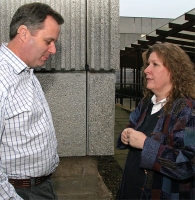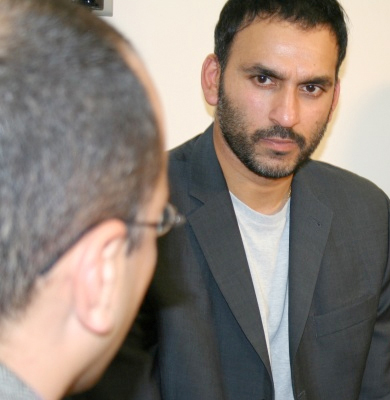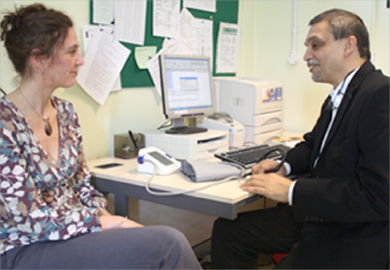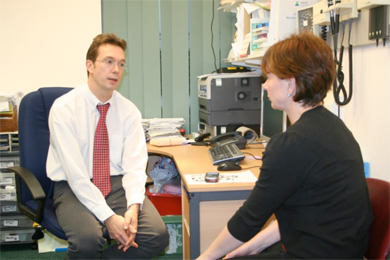Gathering Information course for GPs



This session considers what is required to gather good quality, relevant information during the consultation. This session was reviewed by Suchita Shah and last updated in January 2015.
Learning Objectives
By the end of this session you will be able to:
- State the benefits of having a full patient narrative to work from (including improved clinical outcomes)
- Formulate questions to take an effective patient history, in order to aid diagnosis
- Give examples of different questioning techniques, and recognise the type of information they are likely to elicit
Successful information gathering is at the core of effective consulting. The quality of information elicited impacts on the doctor-patient relationship, the diagnosis, the management plan and patient concordance.
Connie is based at The Birmingham Medical school, and has been involved in the devising and delivery of undergraduate and postgraduate clinical communication programmes since 1991. She has extensive experience of interactive methodologies, and has worked with most postgraduate health and clinical specialities. She founded the current role play team at Birmingham, based on the outcomes of her Masters’ research. She holds a PhD on the reliability of role-play scoring in high stakes medical assessments, and is an accredited member of the Institute of Learning and Teaching. She has published on many subjects, including assessment and gender, and has presented in excess of 40 original short papers at national and international symposia.
Connie has a special interest in training videos, and co-authored, designed and produced numerous commercially available training packages. A novel DVD she produced on language use with dying patients has just been released, and she is currently compiling a book on communicating in intimate consultations.
Having trained in humanities in the 1980’s she retains her interest in performance and creative approaches to teaching, and promotes related methodologies wherever possible. Connie represents Birmingham at the UK Council for Clinical Communication, has a special interest in student selected components of the curriculum (SSCs), and is Academic Lead for the Year 4 Elective.


- Communication Impairments Part 4: Autistic Spectru...
- Posted By eIntegrity Healthcare e-Learning
- Posted Date: 2024-12-23
- Location:Online
- This session is the last of four that looks at different speech, language and communication impairme...
- Communication Impairments Part 3: Cleft Palate, He...
- Posted By eIntegrity Healthcare e-Learning
- Posted Date: 2024-12-23
- Location:Online
- This session is the third of four which describe different speech, language and communication impair...
- Communication Impairments Part 2: Specific Speech ...
- Posted By eIntegrity Healthcare e-Learning
- Posted Date: 2024-12-23
- Location:Online
- This session is about speech sound disorder (SSD). It describes the characteristics associated with ...
- Communication Impairments Part 1: Late-talking Tod...
- Posted By eIntegrity Healthcare e-Learning
- Posted Date: 2024-12-23
- Location:Online
- This session is the first of four which describe different speech, language and communication impair...
- Typical Development Part 2: First Words and Early ...
- Posted By eIntegrity Healthcare e-Learning
- Posted Date: 2024-12-23
- Location:Online
- This session gives an overview of the main aspects of how language typically develops in children. I...







